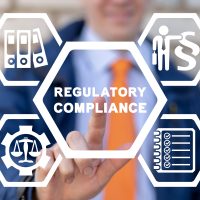The Role of Forensic Accountants in Regulatory Compliance

In today’s complex business environment, regulatory compliance has become increasingly critical. Companies must navigate a labyrinth of laws and regulations, ranging from financial reporting standards to industry-specific guidelines. Failure to comply can result in severe penalties, including fines, sanctions, and reputational damage. Forensic accountants play a pivotal role in helping businesses meet regulatory standards through their expertise in financial analysis, investigative skills, and comprehensive accounting practices.
Regulatory compliance involves adhering to laws, regulations, guidelines, and specifications relevant to an organization’s operations. These regulations are designed to maintain transparency, fairness, and integrity within industries. Key areas of regulatory compliance include financial reporting, anti-money laundering (AML), anti-bribery and corruption (ABC), data protection, and industry-specific standards.
Forensic accountants are uniquely positioned to assist businesses in meeting some of these regulatory requirements. Their expertise extends beyond traditional accounting to include skills in investigation, data analysis, and legal compliance, making them invaluable assets in the regulatory landscape.
The Role of Forensic Accountants
1. Financial Reporting and Audits
Forensic accountants play a crucial role in ensuring accurate and transparent financial reporting. They conduct thorough audits to verify that financial statements comply with Generally Accepted Accounting Principles (GAAP), International Financial Reporting Standards (IFRS), and other relevant accounting standards. By meticulously examining financial records, they identify discrepancies, irregularities, and potential fraudulent activities.
In addition to regular audits, forensic accountants perform forensic audits when there is suspicion of fraud or financial misconduct. These audits delve deeper into financial transactions, uncover hidden assets, and trace illicit activities. Their findings not only help companies rectify inaccuracies but also provide evidence for legal proceedings if necessary.
2. Anti-Money Laundering (AML) Compliance
Money laundering poses a significant threat to financial institutions and businesses. Regulatory bodies worldwide have stringent AML regulations that require companies to implement robust measures to detect and prevent money laundering activities. Forensic accountants assist businesses in complying with these regulations by:
- Developing and Implementing AML Programs: Forensic accountants design comprehensive AML programs tailored to the specific needs of the business. These programs include policies, procedures, and controls to detect and report suspicious activities.
- Conducting Risk Assessments: They perform risk assessments to identify potential vulnerabilities in the company’s financial systems and develop strategies to mitigate these risks.
- Transaction Monitoring and Analysis: Forensic accountants use advanced data analytics tools to monitor financial transactions for suspicious patterns. They investigate any anomalies and report them to the relevant authorities.
3. Anti-Bribery and Corruption (ABC) Compliance
Bribery and corruption are pervasive issues that can have severe legal and financial consequences for businesses. Forensic accountants help organizations establish and maintain ABC compliance by:
- Creating ABC Policies and Procedures: They develop clear policies and procedures to prevent bribery and corruption. These policies outline acceptable conduct, reporting mechanisms, and consequences for violations.
- Training and Awareness Programs: Forensic accountants conduct training sessions to educate employees about anti-bribery and corruption laws and the importance of compliance. They also provide guidance on recognizing and reporting suspicious activities.
- Investigating Allegations: When allegations of bribery or corruption arise, forensic accountants conduct thorough investigations to gather evidence, identify perpetrators, and recommend corrective actions.
4. Data Protection and Privacy Compliance
With the increasing importance of data protection and privacy, businesses must comply with regulations such as the General Data Protection Regulation (GDPR) and the California Consumer Privacy Act (CCPA). Forensic accountants play a vital role in ensuring data protection compliance by:
- Conducting Data Audits: They perform audits to assess the company’s data protection practices and identify areas of non-compliance. This includes reviewing data collection, storage, and processing methods.
- Implementing Data Protection Measures: Forensic accountants help businesses implement measures to protect sensitive data, such as encryption, access controls, and data minimization techniques.
- Responding to Data Breaches: In the event of a data breach, forensic accountants investigate the incident, assess the impact, and assist in reporting the breach to regulatory authorities.
5. Industry-Specific Compliance
Many industries have specific regulatory requirements that businesses must adhere to. Forensic accountants possess the expertise to navigate these industry-specific regulations, ensuring compliance and reducing the risk of penalties. Examples include:
- Healthcare: Compliance with regulations such as the Health Insurance Portability and Accountability Act (HIPAA) to protect patient data and prevent healthcare fraud.
- Finance: Adhering to regulations set forth by the Securities and Exchange Commission (SEC) and other financial regulatory bodies to maintain transparency and prevent financial misconduct.
- Environmental: Ensuring compliance with environmental regulations to mitigate the impact of business operations on the environment.
Benefits of Forensic Accounting in Regulatory Compliance
Enhanced Risk Management
By identifying and mitigating compliance risks, forensic accountants help businesses avoid legal and financial penalties. Their proactive approach to risk management ensures that potential issues are addressed before they escalate.
Improved Operational Efficiency
Forensic accountants streamline compliance processes, reducing the administrative burden on businesses. Their expertise in data analysis and process optimization leads to more efficient operations and better resource allocation.
Strengthened Reputation and Trust
Demonstrating a commitment to regulatory compliance enhances a company’s reputation and builds trust with stakeholders. Customers, investors, and regulatory bodies are more likely to engage with and support businesses that prioritize compliance.
Legal Protection
In the event of legal disputes or regulatory investigations, forensic accountants provide crucial evidence and expert testimony. Their thorough documentation and analytical skills strengthen the company’s legal position and facilitate favorable outcomes.
Contact Teichner Accounting Forensics & Valuations, PLLC
Regulatory compliance is a complex and dynamic challenge that requires specialized expertise. Teichner Accounting Forensics & Valuations, PLLC, offers comprehensive forensic accounting services to help businesses navigate the regulatory landscape. Contact Richard Teichner today to learn how we can assist in achieving and sustaining compliance in your business operations.
